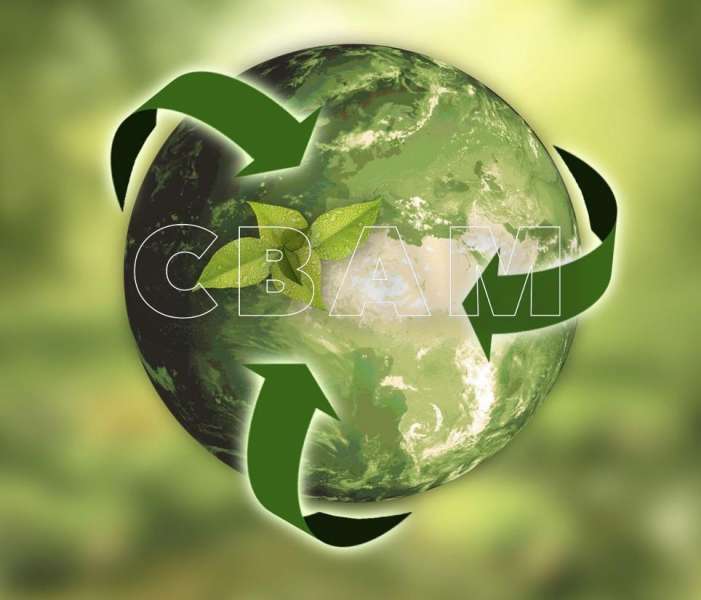On May 28, 2025, the Committee on Economic Development held a meeting with the participation of representatives from the Ministry of Economy of Ukraine, the Ministry of Environmental Protection and Natural Resources of Ukraine, and the Office of the Deputy Prime Minister for European and Euro-Atlantic Integration. The main topic of discussion was the risks to Ukrainian exports in light of the approaching full-scale implementation of the Carbon Border Adjustment Mechanism (CBAM) in the European Union, as well as the negotiation process concerning Ukraine’s potential exemption from CBAM.
CBAM is a new EU instrument that complements the Emissions Trading System (EU ETS) and, starting in 2026, will introduce mandatory carbon payments for importers of goods from third countries, including Ukraine. Importers will be required to purchase CBAM certificates, the cost of which will be determined based on the auction price of CO₂ emission allowances under the EU ETS. As a result, goods originating from countries that lack a fully functioning greenhouse gas pricing system will automatically be subject to an additional tax burden in the EU.
Ukraine is already among the countries most vulnerable to this mechanism. In 2023, Ukrainian exports of CBAM-regulated goods to the EU amounted to USD 3.6 billion, representing 15.4% of Ukraine’s total goods exports to the EU and 9.9% of its global goods exports. Ukraine accounted for 2.6% of the EU’s total imports of CBAM-covered products. Given the limited access to traditional markets and aggressive dumping by russian producers in third-country markets, the EU remains the primary destination for Ukraine’s carbon-intensive exports. In 2023, 78.3% of Ukrainian electricity exports, 80.7% of aluminum, 82.5% of ferrous metals and related products, 86.5% of cement and cement clinkers, and 90.0% of fertilizers were exported to the EU.
The current CO₂ emissions price in the EU is the highest among all countries with comparable systems, and starting in 2026, Ukrainian producers will face a significant financial burden. According to estimates, the cost per tonne of emissions could reach €145 by 2030 and €177 by the mid-2030s. This poses a serious risk to the competitiveness of Ukrainian products on the European market — a key export destination for Ukraine.
According to available analytical forecasts, in the first year of CBAM’s financial implementation (2026), Ukraine’s GDP could decline by 4.8%, exports of goods to the EU by 7.8%, and the manufacturing output index by 13.1%. Tax revenues are projected to decrease by USD 2.8 billion, while job losses may exceed 73,000. These impacts are expected to deepen by 2030, with GDP falling by 6.1%, exports to the EU decreasing by 9.8%, manufacturing output dropping by 16.7%, and job losses exceeding 100,000.
During the Committee meeting, government representatives presented the current position and developments regarding possible response scenarios. It was emphasized that, pursuant to Article 30(7) of EU Regulation No. 2023/956, the European Commission may initiate temporary exemptions from the application of CBAM for countries affected by unforeseen and exceptional events. Ukraine, which has suffered large-scale destruction of industrial infrastructure as a result of russia’s full-scale invasion, formally meets these criteria. At the same time, the implementation of this mechanism requires active intergovernmental coordination and the initiation of official negotiations with the European Commission.
«We have already begun receiving signals from Ukrainian exporters about the critical nature of this issue. Members of our Committee also raised the topic of CBAM during an off-site meeting in Brussels. There is no time to delay — we must urgently intensify negotiations in order to protect Ukraine’s national interests.»
After hearing the positions of government institutions, discussing economic risks, and considering potential diplomatic solutions, the Committee resolved to initiate an appeal to the Prime Minister of Ukraine, requesting urgent measures aimed at protecting the nation’s economic interests amid the implementation of CBAM. Specifically, this involves the need to intensify negotiations with the European Commission to secure a temporary exemption of Ukraine from the financial components of this mechanism for the duration of martial law and for at least five years thereafter.
As part of this appeal, the Committee also called to authorize the Ministry of Economy of Ukraine to conduct negotiations with the European side in accordance with the provisions of Article 30, paragraph 7 of EU Regulation No. 2023/956 of the European Parliament and of the Council.
